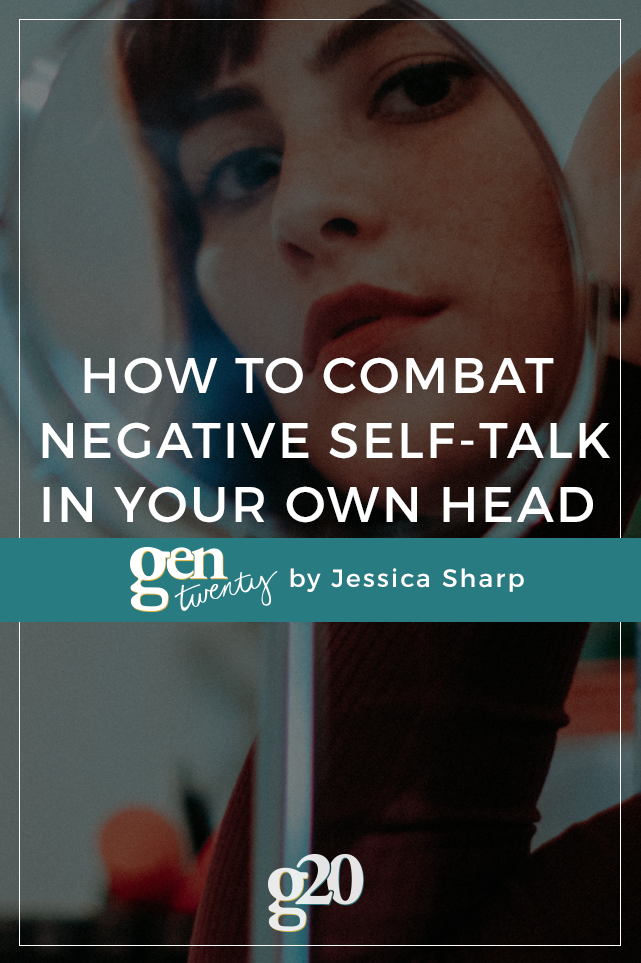
For years I struggled with negative self-talk but didn’t realize it. My internal narrative was, more often than not, hurtful, demeaning, and unhelpful. It made me feel bad about myself, impacted my confidence and impacted what I thought I could do.
Before working on my self-talk, I felt like I had to accept behavior in romantic relationships that was not empowering. When I made mistakes, I would beat myself up for days about the choice.
What is negative self-talk?
Negative self-talk is the internal narrative we all have happening in our brains all the time.
Many of the things we believe and tell ourselves are based on things from our childhood or family of origin or are based on our past experience. These stories have been in our brains for a long time, which makes it hard to change them.
What should you do about negative self-talk?
First, it’s important to know that the goal is to manage our inner critic because it won’t fully go away. Even people who have been doing this work for years and are still dealing with the inner critic. While it will still pop up, it can be easier to manage over time.
Start to understand what your triggers are and what your negative self-talk sounds like.
So for me, my self-talk shows up around work and romantic relationships. I beat myself up about how I show up professionally (and feel like I have to be perfect), and I feel like I am bad at relationships which negatively impacts how I show up in relationships (quite the cycle).
After that, there are a variety of things you can do including changing the narrative and trying to rewrite the story.
This is the one thing I try to do. Instead of saying I am bad at relationships, I say that I have a history of being in relationships with men who are not a good fit for me.
You can also write down the thoughts. This allows you to see them as they are and, hopefully, detach yourself from them. You can stop them in their tracks and basically say no to your thoughts.
As an extension of that, you can give it a nickname (Debbie Downer is a fun one). When the thoughts show up, you can say “Not today Debbie, you’ve got to go.” You can talk to a friend and share your story with them.
[click_to_tweet tweet=”How To Combat Negative Self-Talk In Your Own Head” quote=”How To Combat Negative Self-Talk In Your Own Head”]
Regardless of what you do, please remember to be kind to yourself and practice self-compassion.
This is HUGE! Talk to yourself like you would talk to a loved one (and like you would expect a loved one to talk to you). This is a critical step.
Finally, remember that this is a practice. You will have to practice positive, affirming self-talk and be okay if it doesn’t change immediately, keep at it. For me, knowing that it is a practice relieves me from the pressure of having to keep working on self-talk. It is quite reassuring.
My former life coach, Andrea Owen, is an expert on inner-critic/negative self-talk work. She has a blog and podcast (that are great, by the way), but there are a few episodes I’d recommend that are specifically about negative self-talk:
- How to handle your inner mean-girl
- 3 Steps to Take when you have a Gremlin Attack
I’d love to hear from you! Comment below or reach out to talk more about negative self-talk!
